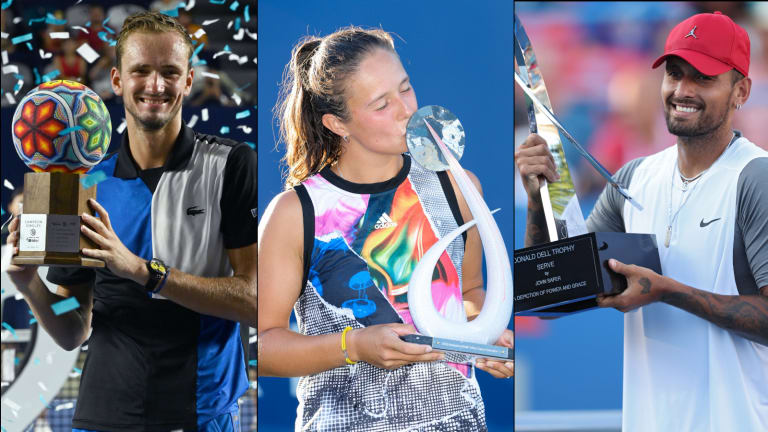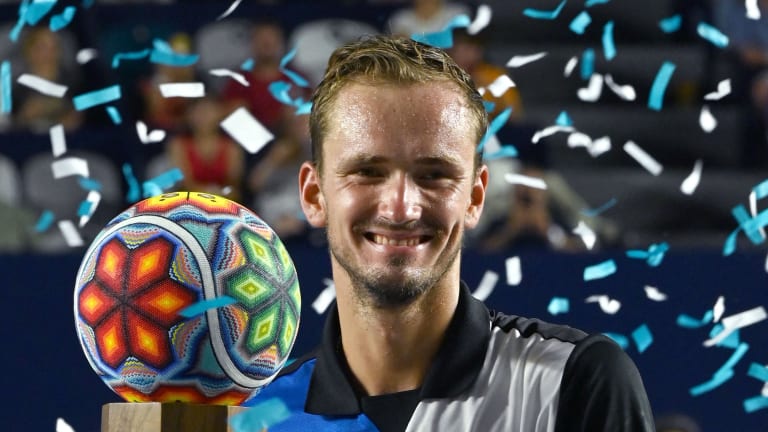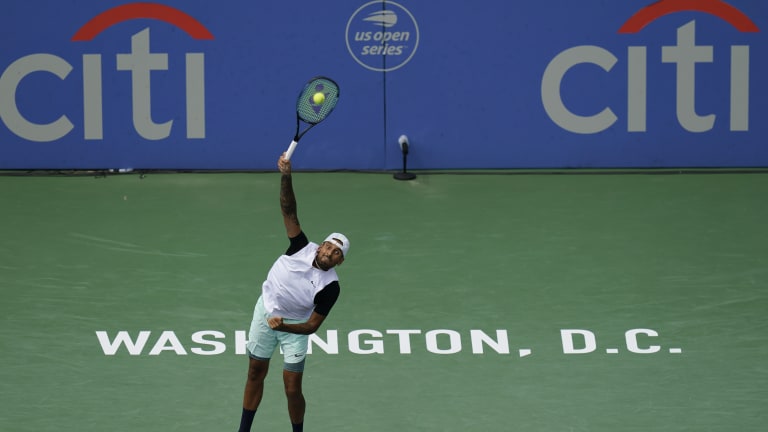Daniil Medvedev bleeds, literally, for his first title of 2022
“The good thing about tennis is that in one week you can turn around your season,” Daniil Medvedev said after his 7-5, 6-0 win over Cam Norrie in the Los Cabos final on Saturday.
This is true, but it’s not a sentiment you typically hear from a player who is ranked No. 1 in the world. Then again, Medvedev’s brief reign at the top of the ATP has been anything but typical. Since he first ascended to that ranking in February, he had failed to win a tournament, and had been banned from playing in the biggest one of all, Wimbledon. Before Sunday, Medvedev’s last title had come at the US Open, almost 11 months earlier. The drought was, understandably, beginning to bother him.
“Coming here I had lost five finals in a row,” Medvedev said. “That’s not nice, I want to do better.
“You never know if it’s going to happen or not, and for sure before this final I was a little bit nervous, a little bit more than usual. But now I’m really happy.”


